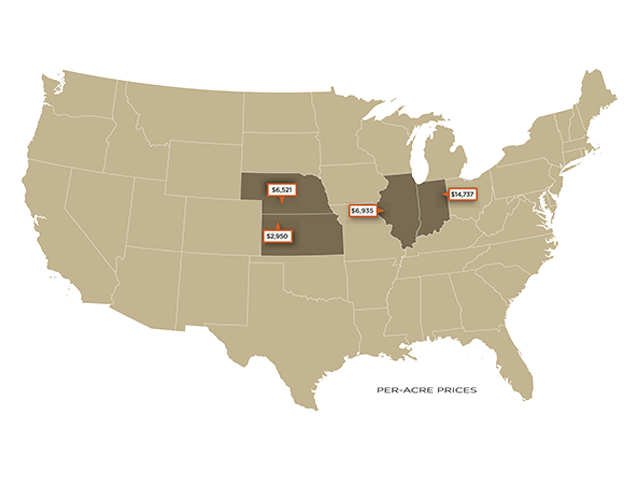Questions About Organic Imports
Feed and other products coming to America may not meet market standards.
Imports of organics have soared in recent years, but there are growing doubts about whether those products are actually organic at the point of sale in the U.S.
An audit by USDA’s Office of Inspector General (OIG) found several flaws in the National Organic Program’s monitoring and verification processes. That program is overseen by the USDA’s own Agricultural Marketing Service (AMS).
The audit notes some imported food and feed products, categorized as organic, did not have the paper trail to prove they were raised under organic standards. In addition, AMS had no controls in place at ports of entry to ensure importers met U.S. organic standards.
Trouble With Transparency. The OIG found USDA’s process for determining equivalency standards overseas lacks transparency. There are documents to resolve differences between U.S. and foreign organic standards, but there is no methodology to disclose how that works to industry. USDA “was unable to provide reasonable assurance” that proper paperwork was reviewed at U.S. ports to verify products called “organic” actually came from certified organic farms and businesses.
P[L1] D[0x0] M[300x250] OOP[F] ADUNIT[] T[]
Further, some fumigation actions taken at port to deal with pests effectively converted commodities from being organic. AMS has not established controls at ports to track whether products fumigated with nonorganic chemicals are later being sold as organic.
The USDA audit came after The Washington Post tracked a shipment of 650,000 bushels of soybeans from the Ukraine in 2017. The soybeans, shipped through Turkey, were labeled “organic” when the shipment arrived in the U.S. The Washington Post found several thousand bushels of corn and soybeans declared “organic” once shipped but with no evidence they were grown under organic standards. USDA pulled the organic certification of a Turkish company following its own investigation into the situation.
Growing Market. Part of the challenge facing the National Organic Program is that it has a $9.1-million funding level to oversee a U.S. organic industry that pulled in roughly $47 billion in sales and is growing at roughly $3.5 billion in sales annually.
Imports of organics have soared in recent years, and there continue to be questions as to whether all of those products are actually organic according to U.S. standards. This is especially true for commodity crops, including organic feed. Imports of organic corn rose from 3.1 million bushels in 2014 to an estimated 20 million bushels in 2017. Organic soybean imports hit 40 million bushels in 2017.
Incentives for importing commodities and dubbing them “organic” can be significant. Cash prices for domestic organic corn averaged $8 to $9 a bushel, while cash bids for organic soybeans were $16.75 to $17.50 a bushel, according to USDA’s latest “National Organic Grain and Feedstuffs” report. Those compare to standard commodity prices under the DTN National Corn Index of $3.04 a bushel and the DTN National Soybean Index of $8.96 a bushel (as of press time).
The Organic Trade Association released a statement saying the OIG report supports the association’s position that more trade oversight and monitoring are needed to protect the integrity of the program. The group is pursuing legislative changes in the next farm bill to give the National Organic Program more tools to deal with fraud, such as electronic tracking of shipments.
The entire OIG audit had nine different recommendations to help the USDA improve the organic program. Included were the need to strengthen control over imports and to verify documents at U.S. ports of entry. In addition, the audit stresses USDA needs to ensure more transparency regarding how equivalency in organic standards is determined. And, USDA is working with U.S. Customs and Border Protection on a memorandum of understanding to review National Organic Program certificates at ports. That memorandum of understanding is expected to be in place early this year. In addition, more controls are being called for at ports to ensure products needing fumigation are not later sold as organic.
FOR MORE INFORMATION:
Full Office of Inspector General Audit
[PF_0218]
Copyright 2019 DTN/The Progressive Farmer. All rights reserved.



